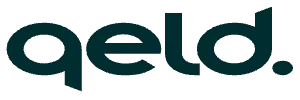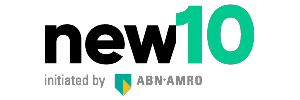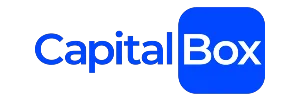Small Business Loans
Small Business Loan Netherlands
Compare the best small business loans in NL
For SMEs, freelancers, and ZZP’ers
From €1,000 to €500,000+

Recommended

Amount
€ 5000 – 250.000
Term
6-36 months
Interest rate
Varies
Verified Company
Non-committal application
Apply in 5 minutes
Example: Loan amount €40,000. Loan term 24 months. Interest rate 1.3% per month. Weekly payment €504.62. Total repayment €52,480. Repayment per week €504.62. Fixed interest 0.5% + premium surcharge 0.8%.

Amount
€ 5000 – 500.000
Term
3-24 months
Interest rate
1.0-2.3%
Verified Company
Fully English Site
In your account within 24 hours
Costs are based on your company’s risk profile. The one-time closing costs of 2% (minimum €650) are not included.

Amount
€ 1000 – 500.000
Term
1-18 months
Interest rate
Individual
Verified Company
Apply in 1 min
Payment within 24 hours

Amount
€ 1000 – 50.000
Term
1-36 months
Interest rate
2,4 %
Verified Company
5-star reviews
Quote same day
Example: Loan amount €19,000. Loan term 26 months. Interest rate 2.2%. Monthly payment €967.38. Interest & costs €236.61. Repayment per month €730.77. Total repayment €25,151.95.

Amount
€ 20.000 – 1.000.000
Term
3-60 months
Interest rate
3.8-12%
Verified Company
Customized offer within 15 minutes
Payment within 24 hours

Amount
€ 5.000 – 500.000
Term
12-60 months
Interest rate
3,0 %
Verified Company
Apply in 1 min
Payment within 24 hours
Example: Loan amount €200,000. Loan term 36 months. Interest rate 3.0%. Monthly payment €8,414.25. Interest & costs €2,500.00. Repayment per month €5,914.25. Total repayment €302,912.95.
Looking for a small business loan in the Netherlands? Whether you’re running a one-person operation or a growing SME, access to capital can make or break your next move. We’ll show you exactly how to find, compare, and apply for the best small business loans—fast, clearly, and without hidden costs.
What Is a Small Business Loan?
A small business loan is financing designed specifically for smaller companies and solo entrepreneurs. It provides working capital for daily operations, investments, or unexpected expenses—without requiring the size or complexity of a large corporation.
Unlike corporate loans aimed at large enterprises or startup funding for pre-revenue companies, small business loans target established but modest-sized businesses with regular cash flow. In the Netherlands, they’re available from banks, online lenders, and government-backed programs.
Typical uses include buying equipment, covering payroll, building inventory, or funding short-term growth. Loan amounts range from €1,000 to €500,000, depending on your business profile.
Who Can Apply for a Small Business Loan?
Small business loans in the Netherlands are available to a wide range of companies—including ZZP’ers, freelancers, sole proprietors, and SMEs with limited staff and moderate turnover. If your business is registered with the KvK (Kamer van Koophandel) and generates income, you’re likely eligible.
Most lenders require at least 6 to 12 months of business activity, a Dutch bank account, and proof of revenue—typically through bank statements or tax filings. While traditional banks may prefer companies with stable turnover and assets, many online lenders and microloan providers also accept newer or smaller businesses.
Typical eligibility requirements:
- Registered with KvK for business loan Netherlands
- Dutch business bank account
- Minimum 6–12 months of operations
- Proof of revenue for small business financing
- Applying for small business loan with no collateral possible
- Small business loan for freelancers or ZZP’ers
Best Types of Small Business Loans in the Netherlands
Small businesses in the Netherlands can choose from several loan types, depending on how much funding is needed, how fast it’s required, and what it’s used for. Some loans offer flexibility and speed, while others provide larger amounts at lower rates if your business qualifies.
Here’s a quick comparison of the most common options:
| Loan Type | Best For | Loan Amount | Repayment Term | Speed |
|---|---|---|---|---|
| Microloan | New businesses, freelancers | €1,000 – €50,000 | 6–36 months | Fast (1–3 days) |
| Term Loan | Growth, expansion, hiring | €10,000 – €500,000 | 1–10 years | Medium (3–7 days) |
| Business Line of Credit | Irregular expenses, cash flow gaps | €2,000 – €250,000 | Revolving | Fast (same day) |
| Equipment Financing | Machinery, vehicles, tools | €10,000 – €1,000,000+ | Up to 10 years | Medium (3–5 days) |
| Invoice Financing | Unpaid B2B invoices | Based on invoice value | 30–90 days | Fast (24–48 hours) |
Microloan
Microloans are ideal for freelancers, new businesses, or companies with low capital needs. Offered by platforms like Qredits, they’re easy to apply for and often require no collateral. Loan amounts range from €1,000 to €50,000 with short to medium repayment terms.
Term Loan
A term loan offers a fixed sum with a clear repayment plan—perfect for business expansion, equipment purchase, or staff hiring. Available from both banks and online lenders, these loans typically require stronger financials and longer operational history.
Business Line of Credit
A flexible credit line gives access to funds as needed. You only pay interest on the amount used, making it ideal for covering short-term costs or managing uneven cash flow. Approval is fast, and many credit lines are unsecured.
Equipment Financing
Used to buy physical assets such as vehicles, machines, or IT systems. The equipment itself serves as collateral, reducing risk and interest. This is a good option if you need to upgrade operations without affecting liquidity.
Invoice Financing
If cash is tied up in unpaid invoices, invoice financing provides a quick advance—usually 80–90% of invoice value. It’s suitable for B2B businesses dealing with long payment terms and seeking liquidity without taking on new debt.
Interest Rates for Small Business Loans
Interest rates for small business loans in the Netherlands vary widely depending on the loan type, lender, and risk profile of your business. Generally, secured loans and government-backed options offer the lowest rates, while fast online loans or unsecured credit lines come at a premium.
| Loan Type | Typical Interest Rate | Rate Type | Secured? |
|---|---|---|---|
| Microloan | 6% – 9.75% | Fixed | Unsecured |
| Term Loan (Bank) | 3.5% – 7% | Fixed or variable | Often secured |
| Term Loan (Online) | 6% – 14% | Fixed | Usually unsecured |
| Business Line of Credit | 7% – 15% | Variable | Usually unsecured |
| Equipment Financing | 4% – 8% | Fixed | Secured by asset |
| Invoice Financing | 1% – 3% per 30 days | Variable (invoice-based) | Secured by invoice |
Rates are influenced by factors such as revenue, creditworthiness, business age, and collateral. Startups and freelancers with limited history often face higher interest, while established SMEs with consistent income can negotiate better terms.
If you’re applying for a small loan with no collateral, expect to pay at the higher end of the range. Always check the APR (annual percentage rate) to understand the total cost, including fees and service charges.
How to Apply for a Small Business Loan in the Netherlands
Applying for a small business loan involves more than just submitting an application. To improve your chances of approval and secure the best terms, you need to prepare the right documents, understand the lender’s requirements, and choose a loan that fits your financial profile.
Steps to apply for a small business loan
- Choose the right loan for small business
- Check small business loan requirements Netherlands
- Gather documents for business loan application
- Compare small business loan offers
- Submit loan application online or via bank
Choose the Right Loan for Small Business
Start by identifying your funding need. A term loan is best for one-off investments or growth. A business line of credit works better for flexible, recurring needs. If you’re a freelancer or new business, consider a microloan or government-supported startup loan.
Matching loan type to business use improves approval chances and avoids overpaying.
Check Small Business Loan Requirements Netherlands
Each lender has different criteria. Most ask for the following.
- KvK registration
- 6–12+ months in operation
- Business bank account in the Netherlands
- Proof of income or turnover
- Valid ID and Dutch business address
Startups may need to submit a business plan and financial forecast instead of revenue history.
Gather Documents for Business Loan Application
Preparation speeds up approval. See commonly required documents below.
- KvK company extract
- Business bank statements (3–12 months)
- Tax returns or annual reports
- Business plan (for newer companies)
- ID and proof of address
Online lenders usually ask for fewer documents than banks.
Compare Small Business Loan Offers
Don’t settle for the first offer. Compare the following.
- Interest rates and total APR
- Loan terms and repayment flexibility
- Upfront fees and early repayment penalties
- Disbursement speed and customer service
Use comparison tools or broker platforms when needed.
Submit Loan Application Online or via Bank
Once you’ve selected a lender, apply through their platform. Online applications often take minutes, while banks may involve a longer process. Upload the required documents, verify your identity, and provide details about your business.
Approval can take from 24 hours to 10 business days, depending on the lender and loan type.
Tip for Approval: Apply only for loans that match your business size and revenue. Avoid overestimating your needs—smaller, realistic loan requests are more likely to be approved, especially if you apply without collateral.
Government Support for Small Businesses
The Dutch government offers several financing programs to support small businesses that don’t qualify for traditional bank loans. These schemes reduce lender risk, making it easier for SMEs, freelancers, and startups to access capital—even with limited collateral or short operating history.
The two main programs are BMKB (Borgstelling MKB-kredieten) and GO (Garantie Ondernemingsfinanciering). Both allow banks and other financial institutions to issue loans that are partially guaranteed by the Dutch state.
BMKB is designed for small and medium-sized businesses that lack sufficient security. It covers up to 75% of the lender’s risk and can be used for working capital, innovation, or business recovery. You must apply through a participating bank or lender.
GO is aimed at larger loan amounts (up to €1.5 million or more) and supports medium-sized businesses needing capital for investment or expansion. It is also available through approved banks and requires a solid business plan.
Another notable option is Qredits, a non-profit lender supported by the Dutch government and EU. Qredits offers microloans up to €50,000 and SME loans up to €250,000, along with free business coaching. It’s especially helpful for freelancers, new entrepreneurs, and small startups.
To access these programs, you generally need:
- KvK registration
- A clear business plan
- Proof of viability or projected income
- No severe outstanding debts or bankruptcies
Government support can significantly reduce the barriers to getting a loan—but you still need to meet basic financial criteria and apply through the right channels.
Pros and Cons of Small Business Loans
Small business loans can unlock growth and stability—but they also come with obligations. Understanding the advantages and risks helps you decide if borrowing is the right move for your company.
Pros:
- Improved cash flow – Helps manage gaps between expenses and income.
- Supports growth – Enables hiring, expansion, or new product development.
- Flexible options – Choose between term loans, credit lines, and microloans.
- Builds credit history – Timely repayments strengthen your business credit profile.
- Access to government-backed financing – Programs like BMKB reduce borrowing risk.
Cons:
- Interest costs – Even small loans carry interest, which adds to total expenses.
- Repayment pressure – Fixed monthly payments can strain cash flow if revenue drops.
- Limited access for new businesses – Some lenders require trading history and revenue.
- Risk of personal liability – Many loans (especially unsecured ones) require guarantees.
- Potential for debt dependency – Relying too heavily on credit may harm long-term health.
In short: business loans are tools—not solutions. Used strategically, they can fuel progress. Used carelessly, they can create financial strain. Make sure the return outweighs the cost before you commit.
FAQ
Small Business Loans Netherlands
Yes. Many lenders offer unsecured small business loans up to €250,000. These are based on your revenue, time in business, and credit profile. Interest rates are higher than with secured loans.
Online lenders can approve and fund loans within 24 to 72 hours. Traditional banks and government-backed loans usually take 5–10 business days.
Absolutely. Freelancers and sole proprietors can access microloans, credit lines, and startup financing. Lenders will review your KvK registration and recent income.
Yes, but options are limited. You’ll likely need to apply for a microloan or government-backed program like Qredits. A solid business plan is essential if you don’t have active revenue.
Rates typically range from 6% to 15%, depending on the loan type and your risk profile. Microloans and bank loans are on the lower end, while unsecured or fast-access loans are higher.
Most lenders ask for your KvK extract, bank statements, ID, and sometimes a business plan or tax filings. Online applications may require less paperwork.
Yes, as long as your business is registered in the Netherlands and you have a Dutch bank account and valid residence status. Many fintech lenders are open to expats.
